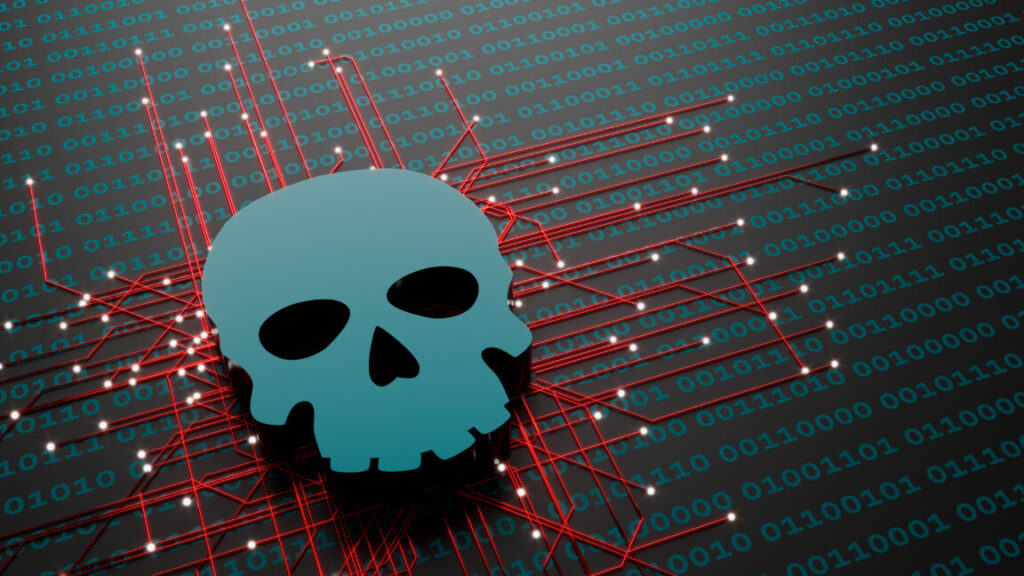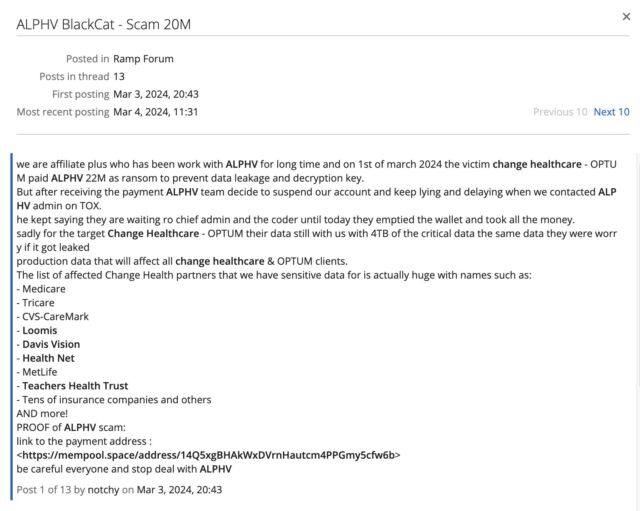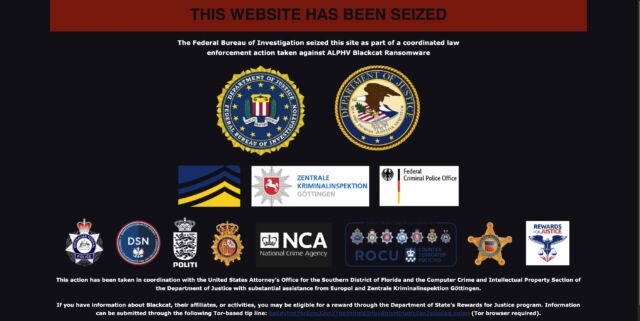How to trade your $214,000 cybersecurity job for a jail cell
According to the FBI, in 2023, Martin took steps to become an “affiliate” of the BlackCat ransomware developers. BlackCat provides full-service malware, offering up modern ransomware code and dark web infrastructure in return for a cut of any money generated by affiliates, who find and hack their own targets. (And yes, sometimes BlackCat devs do scam their own affiliates.)
Martin had seen how this system worked in practice through his job, and he is said to have approached a pair of other people to help him make some easy cash. One of these people was allegedly Ryan Goldberg of Watkinsville, Georgia, who worked as an incident manager at the cybersecurity firm Sygnia. Goldberg told the FBI that Martin had recruited him to “try and ransom some companies.”
In May 2023, the group attacked its first target, a medical company based in Tampa, Florida. The team got the BlackCat software onto the company’s network, where it encrypted corporate data, and demanded a $10 million ransom for the decryption key.
Eventually, the extorted company decided to pay up—though only $1.27 million. The money was paid out in crypto, with a percentage going to the BlackCat devs and the rest split between Martin, Goldberg, and a third, as-yet-unnamed conspirator.
Success was short-lived, though. Throughout 2023, the extortion team allegedly went after a pharma company in Maryland, a doctor’s office, and an engineering firm in California, plus a drone manufacturer in Virginia.
Ransom requests varied widely: $5 million, or $1 million, or even a mere $300,000.
But no one else paid.
By early 2025, an FBI investigation had ramped up, and the Bureau searched Martin’s property in April. Once that happened, Goldberg said that he received a call from the third member of their team, who was “freaking out” about the raid on Martin. In early May, Goldberg searched the web for Martin’s name plus “doj.gov,” apparently looking for news on the investigation.
On June 17, Goldberg, too, was searched and his devices taken. He agreed to talk to agents and initially denied knowing anything about the ransomware attacks, but he eventually confessed his involvement and fingered Martin as the ringleader. Goldberg told agents that he had helped with the attacks to pay off some debts, and he was despondent about the idea of “going to federal prison for the rest of [his] life.”
How to trade your $214,000 cybersecurity job for a jail cell Read More »




